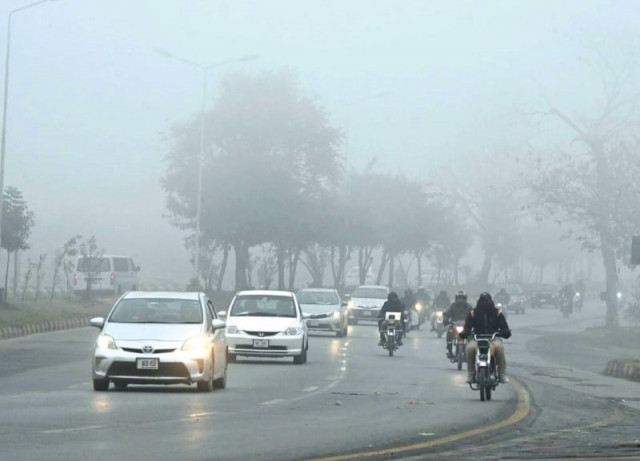Capital hosts 'World Space Week' event
Ministers stress importance of investing in education, technology for nation's future

World Space Week has officially launched in Islamabad, aiming to raise scientific awareness among students and spark interest in space exploration. The main event, hosted at Islamabad College for Girls in F-6, is part of a global celebration held annually from October 4 to 10, emphasising the significance of space research and science.
At the event, Federal Minister for Planning and Development Ahsan Iqbal underscored the vital role of science and technology in national progress. He expressed concern over the current state of the Muslim world, noting that despite the dominance of a smaller nation like Israel in various fields, the global Muslim population of two billion feels increasingly powerless. He pointed out that while nations such as the United States, China, and India have made remarkable strides in space exploration, no Muslim country has achieved similar capabilities, attributing this to insufficient investment in knowledge and technology.
Iqbal referenced the Holy Quran, which encourages exploration and understanding of the universe's mysteries. He emphasised that Pakistan's future hinges on educating its youth and urged them to use World Space Week as a catalyst for scientific aspiration. He highlighted recent improvements in Islamabad's schools over the past six months as evidence of the country's educational reforms, crediting Secretary of Education Mohiuddin Wani for these advancements. He asserted that genuine progress comes from providing modern education rather than engaging in protests.
Education Minister Khalid Maqbool Siddiqui also addressed the gathering, focusing on Pakistan's youthful demographic, which numbers between 150 to 180 million. He described this as both a challenge and an opportunity. Siddiqui warned that advancements in artificial intelligence could significantly alter the global job market in the next 30 to 35 years, potentially rendering a billion people obsolete. To counter this threat, he emphasised the importance of educating the youth to meet international standards. He reframed the notion of sending students abroad for higher education, suggesting it should be viewed as "brain training" rather than a "brain drain," equipping the next generation with essential skills for national development. He also announced that schools in Islamabad have received telescopes, with plans to distribute microscopes soon to enhance scientific learning.
The event featured student presentations on space-related projects, along with a variety of activities planned for the week, including lectures and scientific experiments designed to deepen students' understanding of space.



















COMMENTS
Comments are moderated and generally will be posted if they are on-topic and not abusive.
For more information, please see our Comments FAQ